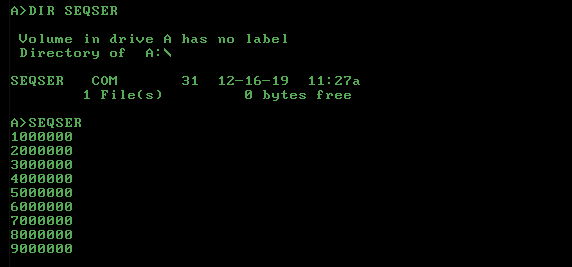x86-16 machine code, IBM PC DOS, 31 26 bytes
00000000: ba10 018b fab1 09b4 09cd 21fe 05e2 fac3 ..........!.....
00000010: 3130 3030 3030 300d 0a24 1000000..$
Listing:
BA 0110 MOV DX, OFFSET O ; DOS pointer to output string
8B FA MOV DI, DX ; pointer to defrerence for increment
B1 09 MOV CL, 9 ; counter to 9
8A E1 MOV AH, CL ; DOS write string function also to 9
LOOPY:
CD 21 INT 21H ; write string to stdout
FE 05 INC BYTE PTR[DI] ; increment first digit
E2 FA LOOP LOOPY ; loop 9 times
C3 RET ; return to DOS
O: DB '1000000',0DH,0AH,'$' ; output string
Standalone DOS executable, output to STDOUT.

TODO: re-do screenshot with old program length!

